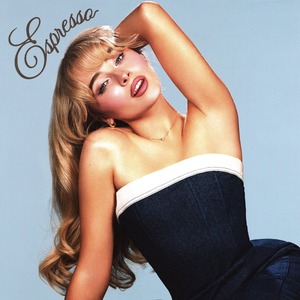Neon Music Explores “Espresso” Lyrics: A Deep Dive Into Modern Vulnerability
Body
Neon Music has always prided itself on peeling back the layers of contemporary tracks to uncover the deeper emotional currents that pulse beneath the surface. True to its ethos of cultural commentary and lyrical analysis, the platform turns its attention to a song that’s been quietly making waves—not because it’s loud or flashy, but because it’s vulnerable, introspective, and sharply relatable.
“Espresso” is a track that doesn’t beg for attention. Instead, it seeps into your psyche the way a slow brew fills a room with its aroma—gradually and with intent. As Neon Music explores Espresso lyrics, the focus isn’t just on what’s being said, but how and why it connects so viscerally with listeners who are tuned into the emotional nuances of modern life.
On first listen, “Espresso” may come off as simple—a mellow rhythm, a soft voice, a repeated metaphor. But through the Neon Music lens, it becomes a canvas painted with emotional precision, internal conflict, and the fragility of connection in the age of digital detachment.
Dissecting the Lyrics: Key Themes and Emotional Metaphors
At its heart, Espresso uses minimalism to express complexity. The song’s core metaphor—comparing a relationship or an emotional state to an espresso—is both elegant and revealing. Espresso, by nature, is concentrated, intense, and quick to consume. Likewise, the relationship described in the lyrics appears to be fleeting yet powerful, leaving a lasting impact despite its brevity.
Neon Music’s lyrical breakdown reveals that the “espresso” metaphor serves multiple functions. On one hand, it symbolizes the intensity of an experience that’s short-lived but deeply felt. On the other, it points to a kind of emotional jolt—something that awakens you, whether you're ready or not.
Lines like "I needed you like a morning shot" speak to a raw emotional dependency, a need to feel something sharp and real amidst emotional numbness. This is not a grand romantic gesture, but rather a quiet confession of vulnerability. The espresso lyrics don’t try to be poetic in the traditional sense—they are conversational, almost like journal entries, making them all the more intimate.
Neon Music’s analysis draws attention to the subtext of modern relationships embedded in the song. It’s not just about love or heartbreak. It’s about emotional pacing. The way we rush into feelings, chase after moments, and then find ourselves drained but still yearning. The song captures this paradox with haunting accuracy.
Artistic Style and Lyrical Delivery
“Espresso” isn’t trying to be an anthem. Its strength lies in its restraint. Neon Music highlights how the track’s production choices mirror the lyrical themes—subtle beats, warm tones, and a vocal performance that borders on whispering. This sonic intimacy creates an atmosphere where every word lands heavier, drawing the listener in rather than pushing them away.
The delivery of the espresso lyrics feels unfiltered and personal, almost like the artist is confiding in the listener. This style is emblematic of a broader trend in modern songwriting where the focus shifts from theatricality to authenticity. There’s no need for vocal gymnastics or layered metaphors here. The song thrives on its ability to articulate what so many feel but don’t say aloud.
Neon Music’s exploration touches on how this kind of delivery aligns with a cultural shift in music—especially among emerging artists. Vulnerability is no longer a risk; it’s a strength. “Espresso” stands as a testament to that shift. Its emotional accessibility is what makes it magnetic, particularly to an audience that values truth over polish.
What also stands out is the pacing of the lyrics. There’s a deliberate pause between thoughts, a kind of rhythmic breath-taking that mimics the thought process of someone working through an emotional realization. Neon Music appreciates this structural choice, noting that it lends the song an almost meditative quality, allowing listeners space to reflect as they listen.
Conclusion
Neon Music’s core audience is one that seeks depth in the music they consume. They’re not just listening for catchy hooks—they’re listening for meaning, for emotional resonance, for something that speaks to the quiet parts of their lives. In this context, Espresso becomes more than just another track—it becomes a mirror.
The espresso lyrics reflect a generation of listeners who are learning to name their feelings, who find beauty in complexity and clarity in confusion. This is the kind of music that doesn’t tell you how to feel but invites you to feel something—on your own terms.
What makes “Espresso” particularly compelling through the Neon Music lens is its ability to say so much with so little. It’s not trying to overwhelm; it’s trying to connect. And in a media landscape that’s often saturated with overproduction and overstimulation, a song like this offers welcome clarity.
In the broader conversation about music and emotional intelligence, Espresso stands out as a subtle yet powerful contribution. It speaks to the emotional urgency of fleeting connections, the burnout of constant craving, and the quiet heartbreak of wanting something more—something deeper—in a world that often moves too fast to notice.
“Espresso” may not shout for attention, but it doesn’t need to. Through Neon Music’s thoughtful analysis, it becomes clear that the song resonates precisely because it understands its audience—and trusts them to understand it right back.













Comments